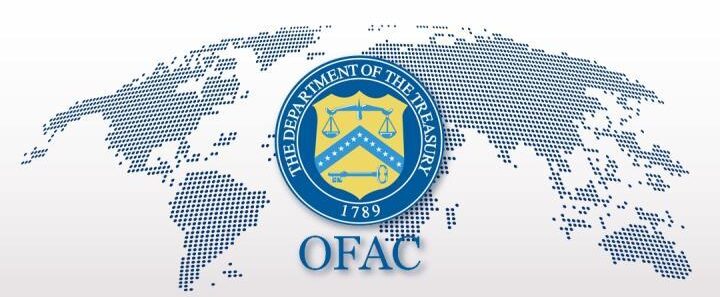The Office of Foreign Assets Control (OFAC) oversees the regulation of cross-border financial transactions involving U.S. parties, enforcing sanctions that restrict or prohibit dealings with specified foreign individuals and entities. To steer clear of OFAC enforcement actions, U.S. parties and intermediaries must adopt a proactive stance on compliance, which includes obtaining OFAC clearance.
By ensuring that parties, assets, and transactions are cleared before engaging in business or facilitating transfers, entities can maintain compliance and mitigate the risk of incurring substantial civil monetary penalties. The OFAC also administers and enforces economic sanctions to ensure that entities aren’t conducting business with an embargoed country or blocked persons like narcotics traffickers.
Understanding the OFAC Clearance
The Office of Foreign Assets Control (OFAC) is a division of the U.S. Treasury Department responsible for enforcing economic and trade sanctions against targeted foreign countries, entities, and individuals. These economic sanctions are designed to achieve national security goals and foreign policy objectives. Additionally, the OFAC maintains other lists associated with different prohibitions that go against the regulation set by the Department of the Treasury.

That said, OFAC compliance refers to the process of ensuring that a person or entity is not subject to these sanctions, allowing them to engage in lawful transactions and business activities within the United States.
OFAC compliance is particularly relevant for individuals and entities that may be listed on the Specially Designated Nationals (SDN) list. This comprehensive list maintained by OFAC includes individuals and companies owned or controlled by, or acting on behalf of, targeted countries. Those on the OFAC sanctions list have their assets blocked and are generally prohibited from engaging in transactions with U.S. persons.
Sanctions lawyers play a vital role in assisting clients with the clearance process, ensuring compliance with U.S. sanctions laws, and advising on the potential need for an OFAC license.
Process for Getting an OFAC Clearance
Obtaining OFAC clearance is a critical step for individuals and businesses engaged in international transactions to ensure compliance with U.S. sanctions laws. The process involves verifying that the parties involved in a transaction are not subject to economic sanctions and do not appear on OFAC’s Specially Designated Nationals (SDN) list.
To request removal from OFAC sanctions lists, including the Specially Designated Nationals (SDN) List, Sectoral Sanctions Identifications List, or Foreign Sanctions Evaders List, individuals or entities must submit a petition to OFAC. This request can be sent via mail or email to the agency and initiates the review process for removal.
Specific details that must be included in the petition for OFAC clearance:
- Identification: the name of the person or entity on the SDN list, along with the contact person’s name, mailing address, and email address;
- Date of listing: the date of the relevant OFAC listing action;
- Request for reconsideration: a detailed description arguing why the sanctions should be cleared, providing evidence and reasoning to support the request.
OFAC states that petitioners do not need a lawyer to help them clear the sanctions against them, and the agency accepts petitions directly from the sanctioned party. However, seeking the assistance of experienced OFAC lawyers can be beneficial when dealing with economic sanctions. These legal professionals can provide guidance on crafting a compelling petition, ensuring all necessary information is included, and navigating the complexities of the clearance process.
Once the petition is submitted, OFAC conducts a thorough review. This process can be time-consuming, often taking several months, depending on the complexity of the case and the volume of similar requests. Petitioners can monitor the status of their petition through OFAC’s communication channels.
Risks of Failing to Get OFAC Compliance
Failing to obtain OFAC clearance can result in severe consequences for individuals and businesses engaged in international transactions. These risks are primarily categorized into civil monetary penalties and criminal prosecution, both of which can have significant financial and legal repercussions.
Civil Monetary Penalties (CMP)
OFAC has the authority to impose substantial civil monetary penalties for violations of sanctions regulations. The penalties can vary depending on several factors, including the nature and severity of the violation.
Egregiousness of the violation
Whether the violation is deemed “egregious” or “non-egregious” can significantly impact the penalty amount. Egregious violations typically involve willful disregard for sanctions laws and result in higher fines
Frequency of the violation
Whether the violation is deemed “egregious” or “non-egregious” can significantly impact the penalty amount. Egregious violations typically involve willful disregard for sanctions laws and result in higher fineszWhether the violation was an isolated incident or part of a recurring pattern can influence the penalty. Repeated violations are likely to incur more severe penalties
Voluntary disclosure
If the party voluntarily discloses the violation to OFAC, it may be considered a mitigating factor, potentially reducing the penalty.
Mitigating and aggravating factors
OFAC considers other factors, such as cooperation with the investigation and the existence of a robust compliance program, which can mitigate or aggravate the penalty.
Civil penalties can quickly escalate, reaching millions of dollars, especially when multiple violations are involved. It is crucial for businesses to maintain comprehensive compliance programs to avoid such penalties.
Criminal Prosecution
In addition to civil penalties, failing to follow OFAC regulations can lead to criminal prosecution under certain circumstances. Several federal statutes, including the International Emergency Economic Powers Act (IEEPA), impose criminal penalties for willful and intentional violations of sanctions laws. Simply being unaware of the law or choosing to ignore a party’s sanctioned status does not exempt one from liability. Demonstrating “willfulness” can be sufficient grounds for federal criminal prosecution against any parties involved in prohibited transactions.
When Transaction Cannot Be Cleared?
In many instances, transactions can be cleared through various means such as ensuring no involvement of sanctioned parties, relying on a general license, or obtaining a specific license. However, there are situations where a transaction cannot be cleared immediately due to the involvement of a sanctioned party or blocked assets, making it impossible to proceed without violating the OFAC sanctions programs.
When a transaction cannot be cleared, it may be necessary to work with the sanctioned party to address the underlying issues. This could involve seeking the release of blocked assets or the removal of sanctions. There are several grounds on which OFAC sanctions can be lifted, and the specific grounds available will depend on the circumstances of each case.
If it is possible to lift a party’s sanctions or unblock assets, this not only resolves immediate OFAC clearance issues but also facilitates future business dealings. Engaging experienced OFAC lawyers can be crucial in navigating these complex processes and achieving a successful outcome.
What you should know about OFAC regulations clearance?
The process of obtaining OFAC clearance can be lengthy and complex, often requiring patience and persistence. In the best-case scenario, an experienced OFAC clearance lawyer can craft a compelling petition for removal, supported by strong evidence, and persuade OFAC to lift the sanctions. However, even in these cases, it is not uncommon for the process to take up to six months from the filing of the petition to the removal of the sanctions.
In other instances, OFAC may require additional information if the initial petition does not fully convince them. This often involves sending a follow-up questionnaire, which can take up to 90 days from the receipt of the original petition. In cases where the initial petition is deemed inadequate, multiple rounds of questionnaires and responses may be necessary before OFAC reaches a decision. As a result, the clearance process can sometimes extend over several years, during which time the petitioner remains under U.S. economic sanctions and is restricted from accessing global markets.
Petitioners can contact OFAC via email to inquire about the status of their clearance petition, but it is advisable to do so only if delays become excessive. If OFAC ultimately denies the request for clearance, petitioners have the option to reapply. However, submitting identical or similar applications is likely to result in another denial.
Decisions regarding OFAC sanctions compliance or clearance are largely at the discretion of their agents, who have significant authority in determining whether sanctions will continue. The process and criteria for removal are outlined in 31 C.F.R. § 501.807, but the factors considered are nuanced and detailed on the OFAC website. This discretion allows agents to justify their decisions based on their mandate to protect foreign policy and national security objectives.
Contact Sanctions Lawyers
When dealing with the complexities of OFAC sanctions compliance and clearance, having experienced legal guidance is invaluable. Our team of dedicated sanctions lawyers is here to assist you with navigating these intricate processes, ensuring that your rights are protected and your business operations remain compliant with U.S. laws. Write to us today to schedule a consultation and take the first step towards resolving your OFAC-related concerns.


